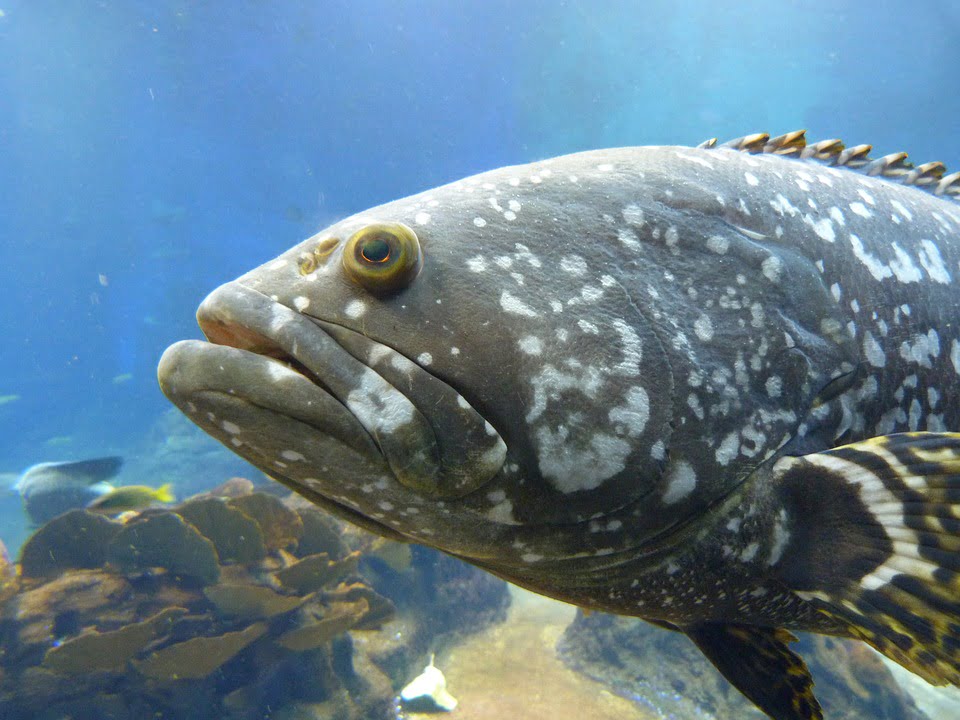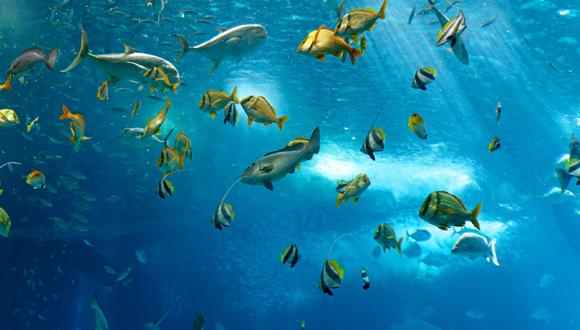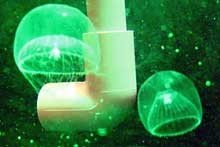Contrary to the message of a popular song from Disney’s 1989 animated hit film The Little Mermaid, not everything is so wonderful “under the sea”.
According to a new Tel Aviv University study, foreign species crossing the Suez Canal are harming indigenous species and habitats in the Mediterranean Sea, damaging vital marine resources and raising concerns about human health issues.
The influx of non-indigenous species (NIS) from the Suez Canal, one of the world’s most important channels of commerce, into the Mediterranean Sea can be traced back to the canal’s 2015 expansion by Egypt. While the expansion of the canal deepens the main waterway and provides ships with a 35 km (22 mile) channel parallel to it, it has had some undesirable effects as well.
SEE ALSO: Research Discovers Why Fish May Be Nearing Extinction
“The most invaded marine basin in the world”
“The Mediterranean Sea is the most invaded marine basin in the world,” Professor Bella Galil of the Israel National Center for Biodiversity Studies at Tel Aviv University’s Steinhardt Museum of Natural History, and the lead author of a study published in December in Management of Biological Invasions, said in a statement. “The number of non-indigenous species greatly increased between 1970 and 2015. 750 multicellular non-indigenous species were recorded in the Mediterranean Sea, far more than in other European seas, because of the ever-increasing number of Red Sea species introduced through the Suez Canal.”
Japanese jellyfish in the Mediterranean
In 2015, during a routine survey by Israeli marine scientists, a green fluorescent jellyfish, usually spotted in Japan, was observed for the first time in the Mediterranean Sea. The creature’s appearance was a clear example of a non-indigenous species popping up in the Mediterranean Sea.
“Hot spots”
In their new study, the authors present data that marine-protected areas in the eastern Mediterranean, from Turkey to Libya, have been overwhelmed by non-indigenous species and serve as veritable “hot spots” of bioinvasion. Biotic communities are already fragile, suffering from man-made problems such as pollution and overfishing. The colonization of these communities by NIS redistributes nutritional resources, removes important actors and renders them more susceptible to extinction.
Sign up for our free weekly newsletter
SubscribeFor example, eastern mediterranean algae-dominated rocky habitats have been decimated by large populations of herbivorous fish introduced through the Suez Canal. The two hungry grazers, Siganus luridus and S. rivulatus, have transformed lush rocky reefs into barren ones, dramatically reducing the quality of the habitat and altering the community structure and food web. Within 30 years, a small Red Sea mussel has replaced the native mytilid along the entire Mediterranean coast of Israel, forming dense nearly mono-specific species “carpets.”
A slow reaction
Despite a century of scientific documentation of marine bioinvasions in the Mediterranean Sea, the implementation of a management policy has been slow. The Convention for the Protection of the Marine Environment and the Coastal Region of the Mediterranean, part of the United Nations Environment Program (UNEP) Regional Seas Program, adopted an “Action Plan concerning species introductions and invasive species in the Mediterranean Sea” in 2003. But the UNEP has “shied away from discussing, let alone managing, the influx of tropical non-indigenous animals and plants introduced through the Suez Canal. So far no prevention and management measures have been implemented,” according to Prof. Galil and her associates.

Prof. Bella Galil. Courtesy of Tel Aviv University
SEE ALSO: New Fish And Insects Introduced To Jordan River For Rehabilitation Project
A hope for effective intervention
The authors of the study led a discussion on effective management of non-indigenous species introductions into the Mediterranean Sea at a EuroMarine workshop that took place in Ischia, Italy, in 2016. The discussion resulted in the “Ischia Declaration” that laid down principles for an effective, science-based, transboundary management of the problem. The declaration was then approved by the general assembly of EuroMarine, a network of 73 research institutions and universities, funded by the European Union.
“We hope that this new research will be used to construct a science-based effective management of marine bioinvasions, and prevent, or at least minimize, the influx of additional non-indigenous species into the Mediterranean,” Prof. Galil said in a statement. “Time will tell whether these aims are achieved or legislators and management continue to put off confronting this difficult issue and pass the environmental, economic and social burden to future generations.”
In the meantime, the researchers are currently investigating pollution and other NIS-related factors.

Fish at Sea via Pixabay
Photos: Tel Aviv University, Haifa University, Pixabay
Related posts

Resilient And Nutritious New Plant-Based Milk Aims To Make A Splash

Chocolate From Cultivated Cocoa Comes Without Environmental Toll

Plastic Fantastic: Startup Takes PVC Back To Its Crude Oil Roots





Facebook comments